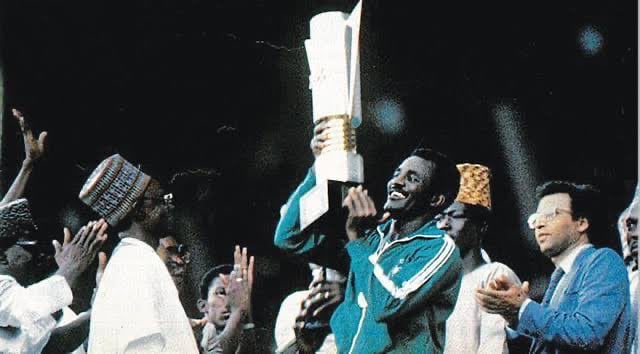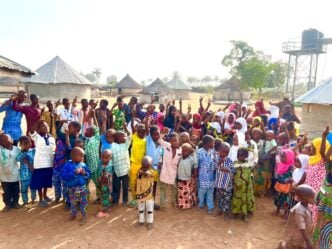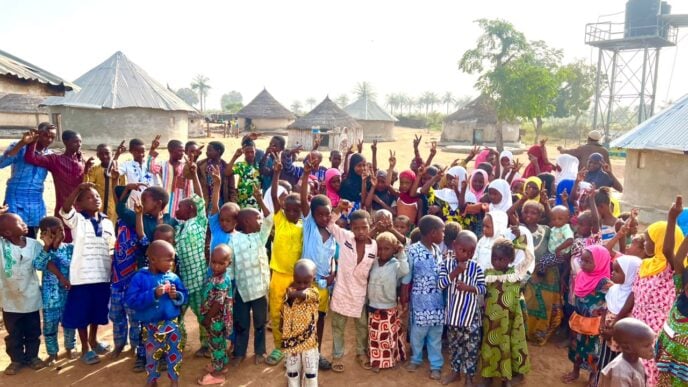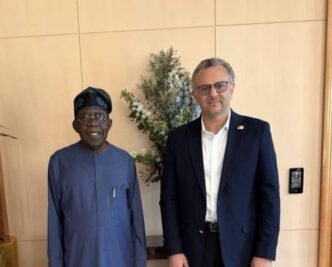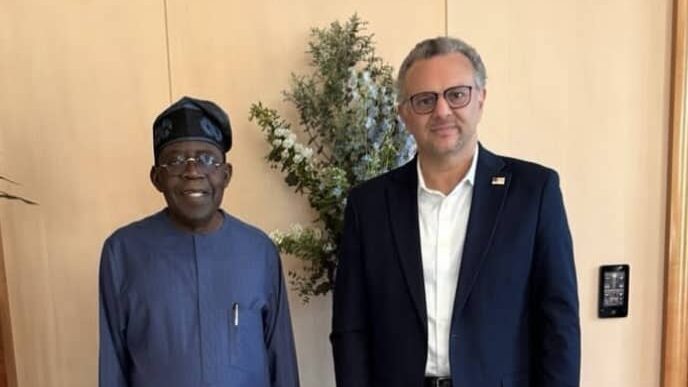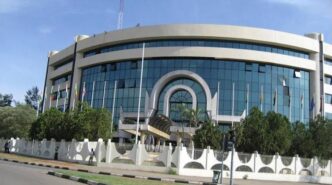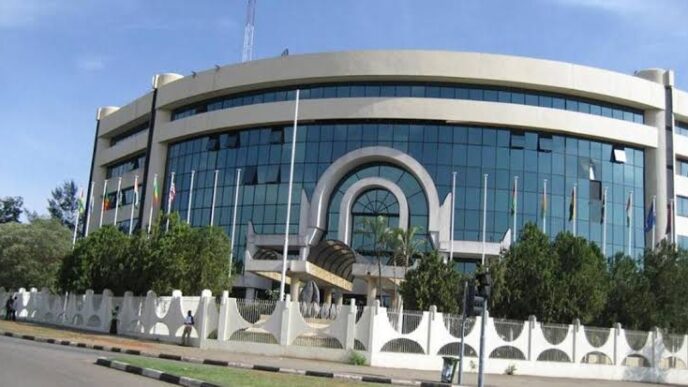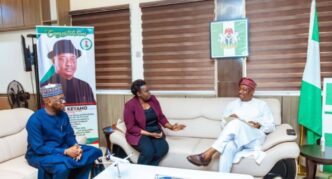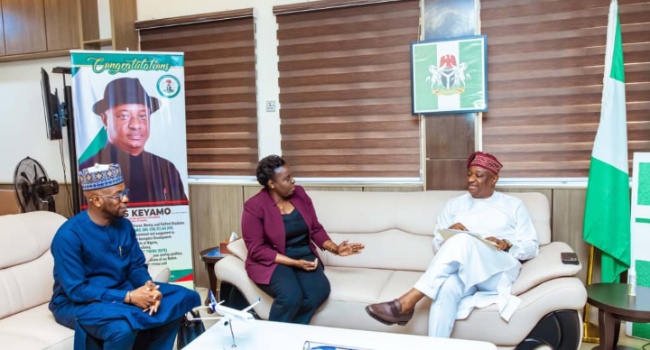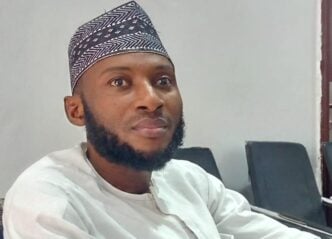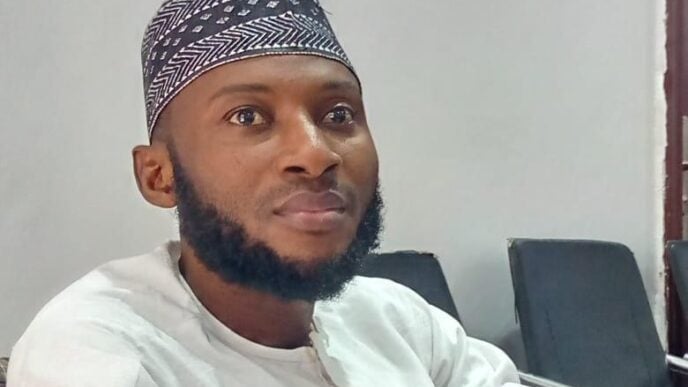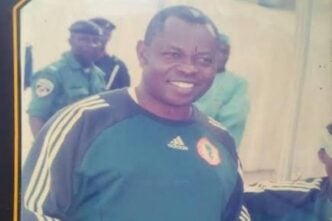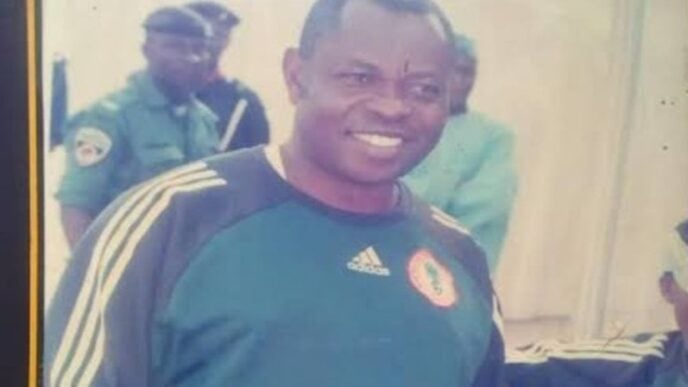Christian Chukwu lifting the 1980 AFCON trophy -- Nigeria's first-ever continental trophy
“One thing in life, first things always last forever. The second, third and fourth are good too. But that first time, you will always have to say who are the people that brought this cup for the first time,” Christian Chukwu said in a 2020 interview. The “chairman”, as he was fondly called, knew his place in the history of Nigerian football. Nobody before and after him can take his place as the first Eagles captain to lift the Africa Cup of Nations (AFCON).
He was such a great footballer that he almost became a fairytale. Ernest Okonkwo, the legendary football commentator, dubbed him “chairman” due to his prodigious leadership quality from the base of the defence. He was also known as “field marshall” because he was always a conduit of calm and coolness that influenced the entire team.
Chukwu, who passed away on April 12 at age 74, would have been priceless if he had played in the current money-drunken football terrain. He was a footballer ahead of his time. He was among the first generation of ball-playing defenders. He had it all: accurate diagonal passes to running wingers, intelligent anticipation to stop attacks before they became dangerous, and the heart to score important goals like a striker.
Chukwu was a charismatic leader who became captain of club and country before turning 25 — a rarity in his playing days. In Ethiopia 1976, he captained Nigeria to the country’s second-ever AFCON appearance after a 13-year absence. When Nigeria won the 1980 AFCON, his brilliant command of a stingy defence won him the tournament’s best player award.
Advertisement
Despite his legendary talent, Chukwu played for just one club. He only represented Enugu Rangers, his hometown club. He belongs to the exclusive line-up of one-club men which comprises legendary football names like Pablo Maldini, Francesco Totti, Tony Adams, and Ryan Giggs, among others.
The story of Chukwu started and ended in Enugu. He was once a plantain seller who sometimes forsook his goods to kick football with friends in the coal city — and he died as the city’s greatest football export to the world.
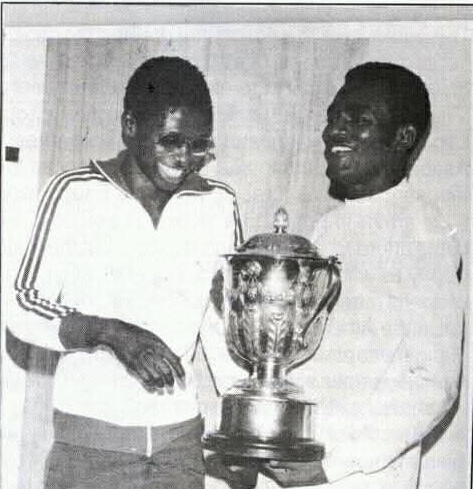
THE BUTCHER’S SON DISCOVERED AT NGWO PARK
Advertisement
Chukwu was born in Enugu on January 4, 1951. Football was first a guilty pleasure, and his parents were keen to beat the passion out of him.
He was famous for his talent from his early days at Christ Church Primary School and National Grammar School in Enugu. Young Chukwu was a mini-celebrity at Ngwo Park, a local pitch in Enugu famed as the breeding ground for the city’s best football stars.
Chukwu’s parents left him scars for trying to be a “nonentity” who prioritised a hobby over his studies. He went to bed on an empty stomach on some days as punishment for playing football.
But not the pain, hunger, or disappointment on his parents’ faces could subdue the joy Chukwu felt when he had a ball to kick around.
Advertisement
Chukwu’s father was a butcher, and his mother was a plantain trader in the neighbourhood. To curtail his love for football, the mother would send her son to hawk plantain whenever he was free. But the measure only gave him more time to play the sport he loved.
“My mother would load up a tray of plantain for me to go and sell. All these were to stop me from playing the game,” Chukwu told Vanguard in 2023.
“But I would complete sales, drop my tray at one corner, and join my friends on the pitch. Sometimes I forget my school bag.
“Then, I would hide my wares somewhere in the stadium. But most times, I wasn’t lucky because, by the time the game was over, my wares would be nowhere to be found again. Some mischievous children would have traced where I kept away my wares and feasted on them.”
Advertisement
Chukwu’s parents’ concern about their son’s future was not far-fetched. According to Chukwu, footballers were paid with “Lucozade and oranges” around that time.
Then, Dan Anyiam, the first-ever captain of the Nigerian men’s national team, watched a teenage Chukwu play at Ngwo Park one day. Anyiam immediately recognised the teenager’s talent and persuaded Chukwu’s parents to relax their antagonism to their son’s favourite sport.
Advertisement
“He [Anyiam] started seeing me when I was a teenager rocking Uwani Enugu. He came to see a street match at Ngwo Park, Enugu and hugged me after the duel and encouraged me to continue,” Chukwu said.
“He had such a likeness for me that I couldn’t explain or understand. He said I played his in his position. He once came to our house to talk to my father who refused me from playing.”
Advertisement
Anyiam, already a celebrated football manager, selected Chukwu among the young students to represent East Central state at the Manuwa/Adebajo Academicals Cup — a national football competition for secondary students — in 1971.
The tournament was one of the first national football competitions to be hosted after the Nigerian Civil War, which lasted from 1967 to 1970 and devastated the eastern region of Nigeria.
Advertisement
For Chukwu, Godwin Ogbueze, Dominic Ezeani, Kenneth Ilodigwe, and other members of the East Central Academicals, the competition held meaning beyond football. They swept every other team aside to win the cup.
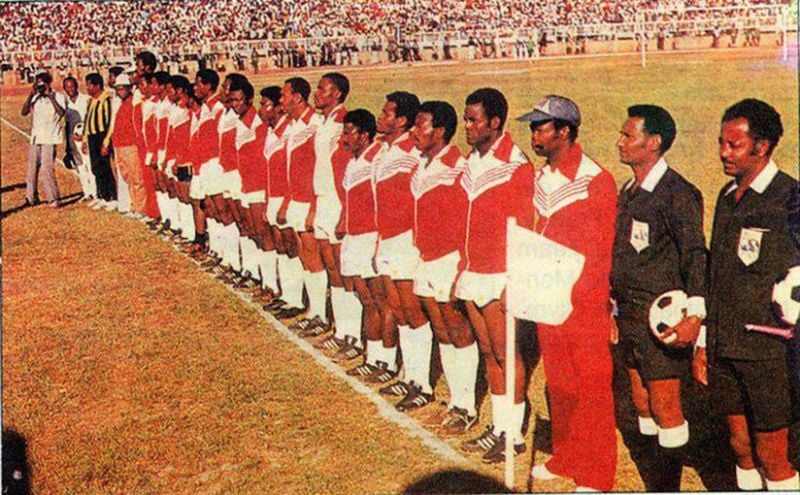
A ONE-CLUB FOOTBALLER AT ENUGU RANGERS
Enugu Rangers was founded in 1970 as a unifying entity for people of eastern Nigerian extraction following the tragedy of the civil war. Many Igbos across Nigeria returned home during the war. Igbo footballers were among the returnees, and the strong, talented group formed the core of the newly formed team.
Dan Anyiam was Ranger’s pioneering head coach, and he signed Chukwu immediately after their triumph in the Academicals Cup.
Enugu Rangers won the Challenge Cup, now known as the Federation Cup, for three consecutive years from 1974 to 1976.
They defeated Mighty Jets of Jos, Shooting Stars of Ibadan, and Alyufsalam Rocks of Ilorin in all three finals. The latter team had ten Ghanaian players and only one Nigerian in its line-up.
Chukwu became the Enugu Rangers’ captain in 1975, leading the club to their first-ever continental trophy when they lifted the African Cup Winners Cup in 1977.
The African Cup Winners Cup was rechristened the CAF Confederation Cup in 2004.
Chukwu went on to captain Enugu Rangers till his retirement in 1981. He won nine trophies with the only club he played for throughout his career.
“During our time, players don’t move about. If you’re playing for Rangers. That is where you end your ball. Unlike now, where players move about because of money,” Chukwu said in a chat with Elegbete TV in 2024.
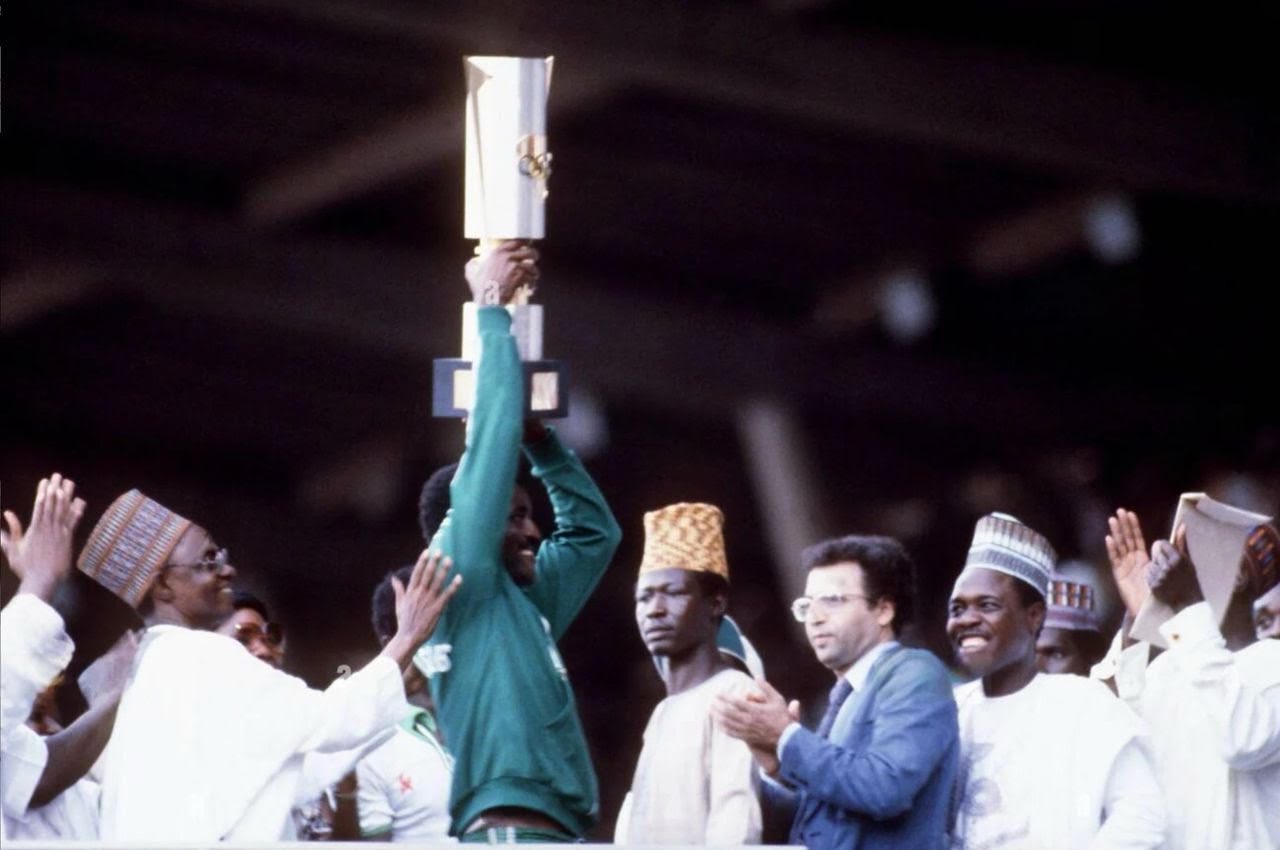
FIRST EAGLES CAPTAIN TO LIFT AFCON
Chukwu earned his first call-up to Nigeria’s men’s national team in 1974. The team was called the Green Eagles until 1988 when its name was changed to the Super Eagles.
Chukwu debuted for the team in a 2-0 win against Cote d’Ivoire in an international friendly match. A year later, he was named the captain of the Eagles and guided the team to bronze medals in consecutive AFCONs in Ethiopia in 1976 and Ghana in 1978.
At the 1980 AFCON hosted in Nigeria, Chukwu marshalled the Eagles’ defence, and the team conceded just one goal throughout the competition.
The Eagles team consisted of Segun Odegbami, Adokiye Amiesimaka, Muda Lawal, Henry Nwosu, and Best Ogedengbe, and they scored for fun.
On March 22, with a sold-out National Stadium in Lagos cheering on, Nigeria defeated Algeria 3-0 in the final, and Chukwu became the first Nigerian to lift the AFCON trophy.
“It was jubilation everywhere, and it was the first time I was able to ride a horse around Lagos streets with the crowd cheering; I felt like a king,” Chukwu told Punch in 2020.
“President Shehu Shagari gave us houses, cars and some other gifts. We were on top of the world. There is nothing like that, even though we did not make enough money back then.
“The feeling of winning the AFCON for the first time will be there forever.”
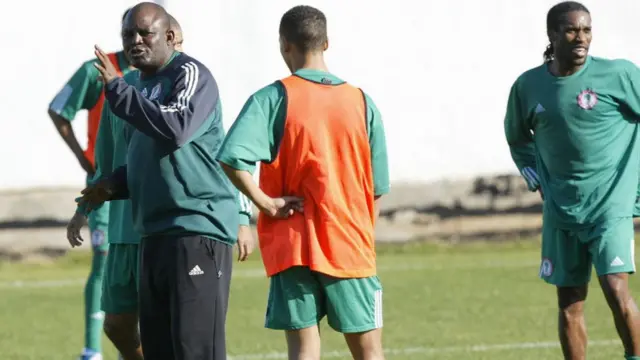
ASSISTANT COACH OF FIRST NIGERIAN TEAM TO WIN A FIFA GLOBAL TROPHY
After retirement, Chukwu ventured into football management. He took charge of Enugu Rangers and led the team to another Challenge Cup triumph in 1983.
Then, he was named an assistant coach to Sebastian Brodericks-Imaseun, the head of the Nigerian U-16 men’s team.
In 1985, the team won the 1985 FIFA/KODAK U-16 World Cup in China — the first time a Nigerian team won a global football competition.
Almost a decade later, Chukwu was also an assistant to Clemens Westerhof when the Eagles won their second AFCON title and qualified for the FIFA World Cup for the first time.
Chukwu was the head coach of the Super Eagles from 2002 to 2005 and led the team to a bronze medal finish at the 2004 AFCON in Tunisia.
’19 YEARS LATER, NFF YET TO PAY MY SALARY’
In 2024, Chukwu said the Nigeria Football Federation (NFF) still owes him salary from his time as the Super Eagles head coach.
Chukwu accused NFF of failing to pay his remuneration 19 years after he had left the job.
“I am still being owed up to today. They are still owing me till tomorrow. My files are there with the NFF. There is nothing I can do [to get them to pay me]. The file is there. Go to their office, and you will see how much they owe me. Not only me but other indigenous coaches are being owed too. Some are late,” the former Eagles manager said.
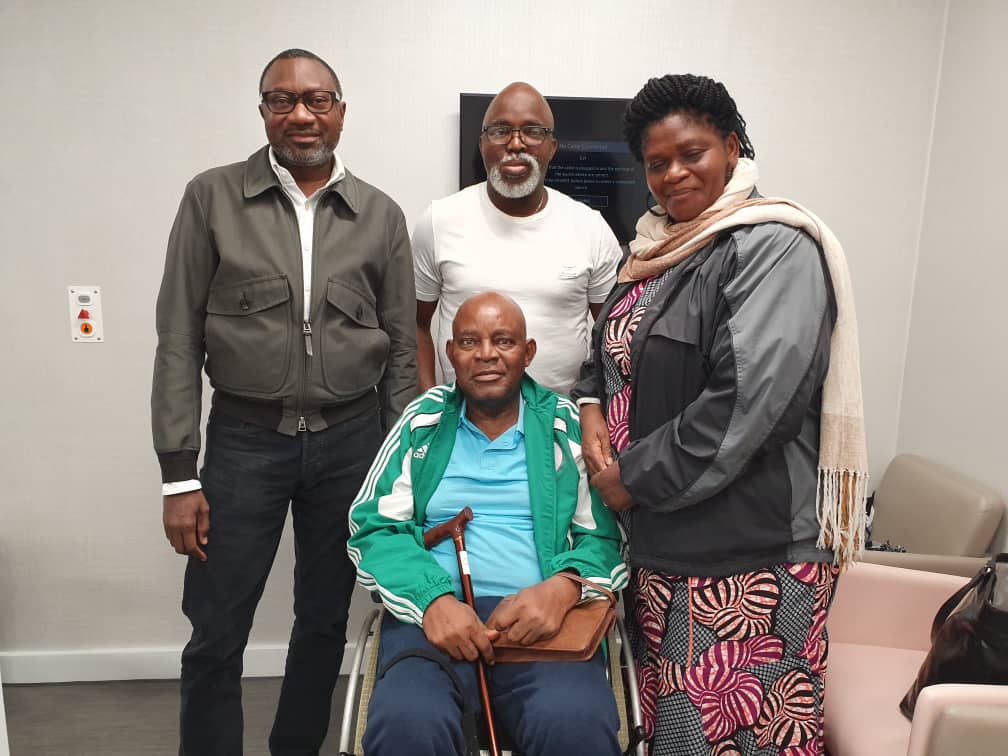
‘AFTER GOD IN MY LIFE, IT’S OTEDOLA’
In 2019, Chukwu suffered prostate cancer, which affected his leg.
The family had to open a GoFundMe appeal to solicit funds for his medical treatment.
Femi Otedola, the billionaire businessman, eventually paid $50,000 for Chukwu’s treatment at Wellington Hospital in London.
Upon returning from the surgery, Chukwu declared that after God, Otedola was the next person in his life.
“Otedola has made me, I can play football again. If you saw me before I left for London, you won’t believe I’ll be here talking to you. I think I won’t be making a mistake if I say after God, it’s Otedola in my life,” he said.
“I had many complications, and I couldn’t walk. When I heard Otedola brought out money for my treatment, I marvelled because, in my circle, we didn’t know him before then. We have people with us but maybe they forgot or it’s not in their character (to help). I don’t know how to thank Otedola enough, God bless him.”
Chukwu is survived by his wife, whom he married in 1982, and their four children and numerous grandkids.
